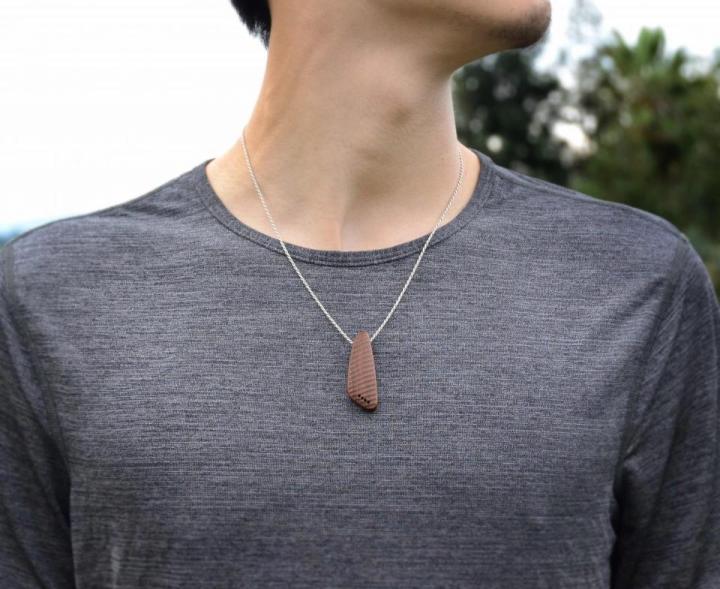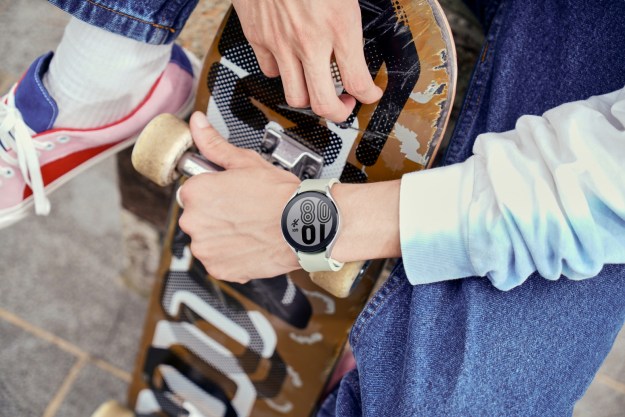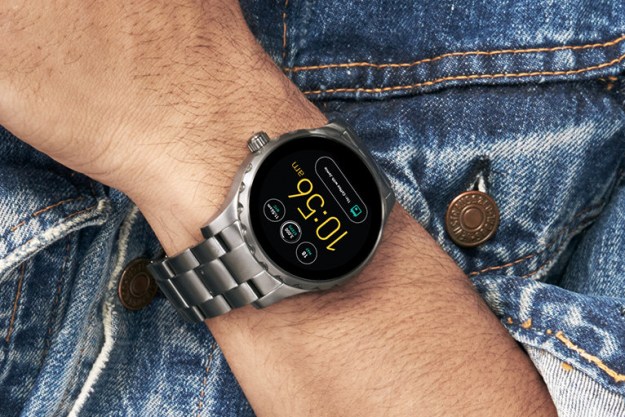
Unlike rubbery Fitbits and other high-tech fitness trackers, Pose comes as an aesthetically pleasing bamboo pendant that can be worn as a necklace or clipped to various articles of clothing. Its original purpose was to improve posture — Pose learns the posture you want to achieve when you calibrate it with its associated app, and then warns you by gently vibrating when you’ve deviated from the posture too long. Users can also set the vibration strength, the minimum time interval between vibrations, and set quiet hours to keep Pose from vibrating at night.
Opter Life has also packed in a whole bunch of additional applications associated with “empathy tech” that help users improve their light exposure, sleep habits, and more. It even works as a basic fitness tracker, calculating and recording steps, exercise and calories.
“My husband has always had posture issues, and he had the idea of making something that could fix posture,” CEO Chalisa Prarasri recently told the Advertising Specialty Institute. “But I was thinking a bit bigger What if we could make a better fitness tracker? At that point I’d gone through so many of them, and they had all been disappointing. I was really trying to create the ultimate wearable that I’d actually want to wear.”

For such a small package — the pendent that holds the scanners and battery are small enough to go unnoticed — the Opter team has packed in a ton of technology. In addition to the posture tool and fitness trackers, the Pose also includes a UV sensor and a blue light sensor, as well as an accelerometer. Opter partnered with a sleep disorder specialist to craft light-based recommendations based on the amount of light that Pose records a user receiving during the day.
One sensor tracks UV intensity and issues warnings in real time if a user’s exposure passes a certain threshold — Pose will even remind you to reapply sunscreen. Conversely, too much or too little blue light can affect a person’s memory and alertness, and even throw off someone’s entire sleep cycle. During the day, Pose can tell users if a room is too dim to boost productivity; meanwhile Pose offers notifications if it’s too bright at the wrong time of day, helping users to adjust their sleep schedule accordingly.

In addition to cramming a lot of technology into a very tiny space, the Opter team was adamant that the Pose has to look good, be unisex and modern, and above all be stylish. The team’s chief scientist made the crucial suggestion that the exterior be made from wood.
“There simply wasn’t anything out there in the wearable tech market that was good enough, so we created Pose,” Prarasri told Forbes, who calls Pose “The new must-have in wearable tech.” The unit is slated to retail at $99, and Opter has already begun interaction tests at a Target Showroom. FCC/CE certification will begin in November, with manufacturing of backer units slated for December, for shipment in the first quarter of 2018.
The company was formed in 2015 by Prarasri, who earned a bachelor’s degree in neuroscience from UCLA and worked as a researcher at the Broad Center for Regenerative Medicine; and future husband Cutter Coryell, who earned a degree in physics from Caltech and has worked at UCLA’s Center for Cognition. The company concept was originally to create a health-based ecosystem of products that connect from the wearable market to the smart home, starting with a smart toothbrush.

“Initially we were building a small toothbrush actually and we kind of uber simplified it until it was basically an accelerometer on a stick,” Prarasri told Wareable. “And then we realized that nobody cares about that product, but we already built the tech.”
Opter is still pursuing the idea of a family of health-based products that live up to its motto, “Thrive in style.” Their first inclination is a smart water bottle that not only tracks how much water you drink, but also integrates with the Pose device to suggest how much water to drink based on your activity.

“I think if we succeed at implementing everything we plan to do with Pose, it’ll be a complete game-changer,” Prarasri said. “We’re working with one of the best behavioral psychologists in the world to build something that will actually help people change their behaviors for better heath. It’s not just data we care about — it’s about what we do with this data and how we use it to motivate and inform. It’ll be like having an AI wellness coach in your pocket at all times. Anyone who’s ever had a personal trainer or wellness coach can tell you how ridiculously effective that is.”
Editors' Recommendations
- The Fitbit Luxe helps you manage your stress levels — and look good doing so
- Sleep tracking is coming to Apple Watch, but monitoring your sleep is a bad idea


